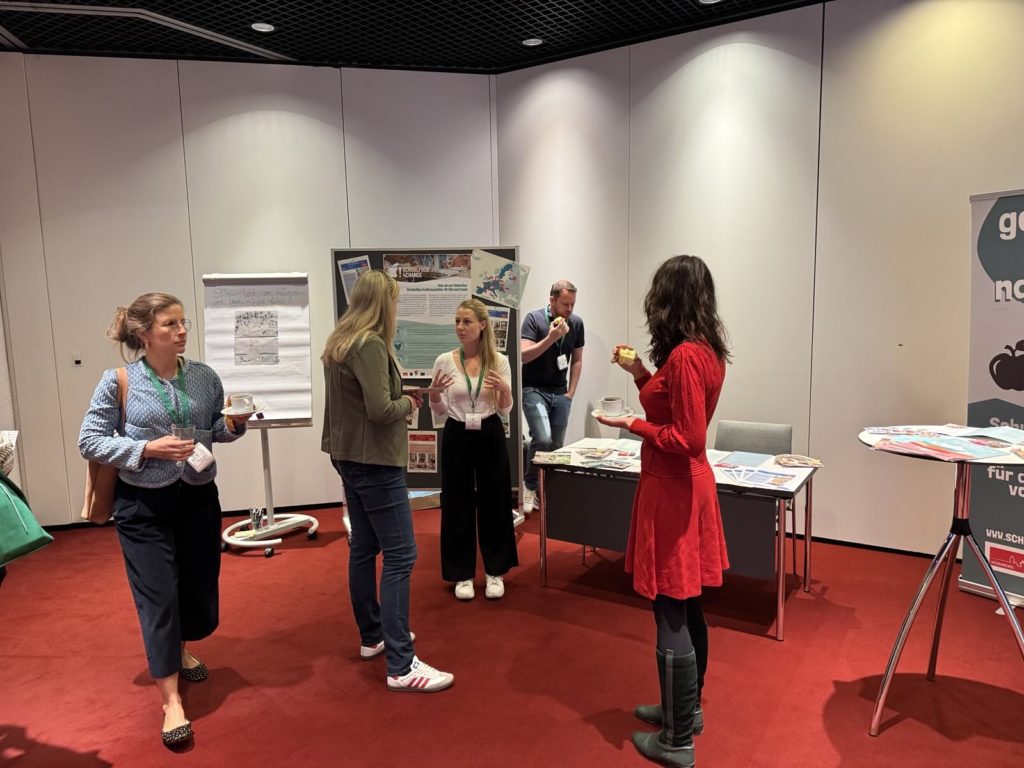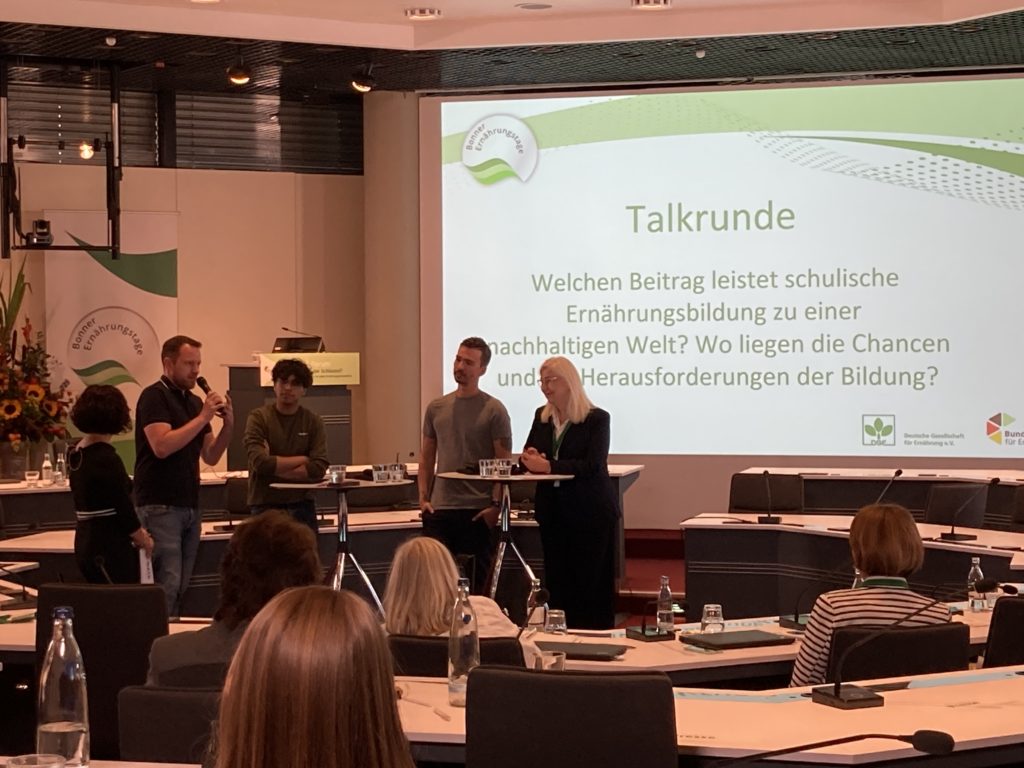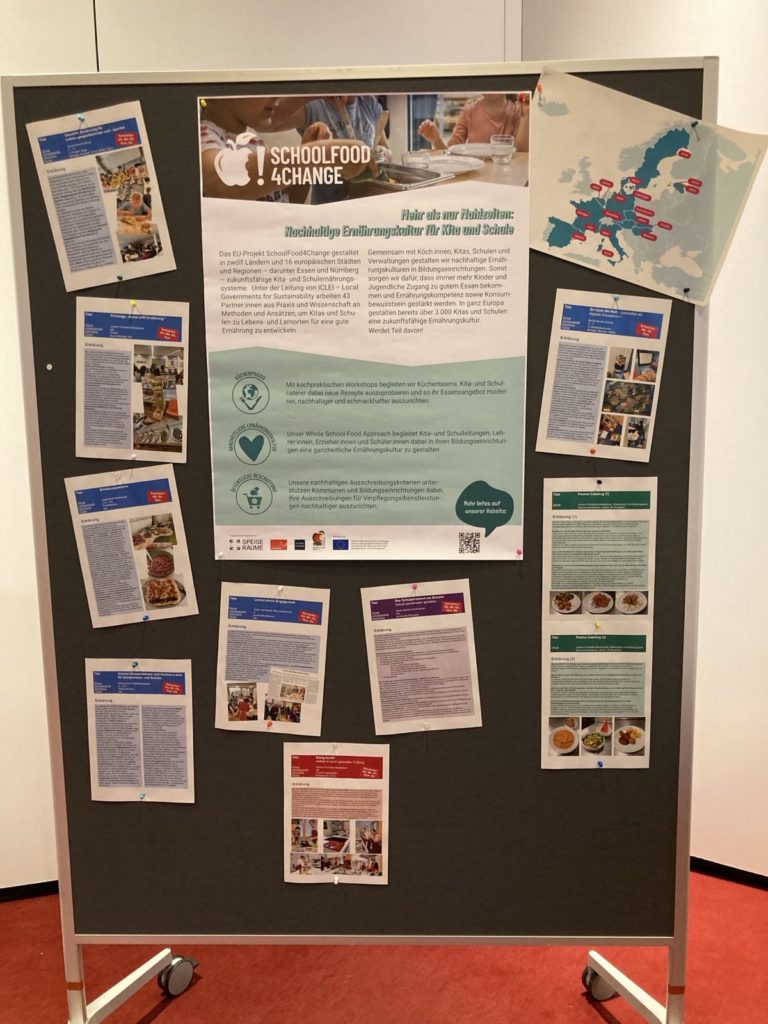On 16 September, SchoolFood4Change partners Speiseraume and the City of Nuremberg had the honor of presenting at the Bonner Ernährungstage (Bonn Nutrition Days), held this year as the BZfE Forum (German Federal Center for Nutrition).
The forum’s central message was clear: education matters, but it cannot act alone. While nutrition education is an important part of the solution, lasting change requires a whole-system approach. As Barbara Kaiser, head of the Bundeszentrum für Ernährung (BZfE), stressed: “We must view educational institutions holistically as places of learning for health and sustainability.”
This thinking aligns closely with the SF4C vision. Our three pillars approach demonstrates that this integrated model, which connects food education, food procurement, and dietary habits, tackles school food on all fronts to ensure that each school can improve the meals served while teaching children why it is so important to eat healthier and in a more sustainable way. By embedding nutrition into everyday life at school, students don’t just learn about healthy and sustainable eating—they experience it first-hand.
The importance of this approach was echoed by other speakers. Ayush Yadav from the Federal Student Conference pointed out that while most students know the food pyramid, few truly understand its meaning. Dr. Antje Brock from the Free University of Berlin explained why: “All our learning is emotionally anchored.” Knowledge alone doesn’t change behavior—it must be tied to curiosity, joy, and lived experience.

In SchoolFood4Change, authentic, action-based learning is central to the Whole School Food Approach. A great example of this is our Farm-to-School Twinnings activities, where students actively engage with food production, tasting, and preparation. By combining education with practice and making positive food experiences part of school culture, SF4C helps create real pathways toward healthier lifestyles and sustainable food systems.
During the panel discussion, Chris Sandner, representing the City of Nuremberg, joined experts and practitioners to highlight the crucial role of nutrition education in building a healthier and more sustainable future, sharing both opportunities and challenges. Overall, all participants agreed that projects like SchoolFood4Change are a clear example of how integrated approaches can make change tangible—and lasting.

Thank you to Speiseräume and the City of Nuremberg for their continued commitment, vision, and partnership in making healthy and sustainable school food a reality. Together, we are showing that change is possible when education, practice, and policy work hand in hand.
